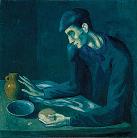|
Howard Sklar, PhD |
|
University Lecturer Department of Modern Languages (English Philology) University of Helsinki
Title of Docent in Literary Studies, with a Special Emphasis in Narrative Theory (University of Tampere) |
|
Disability Studies and Literature (Fall 2019) |
|
Course Description
Within the humanities, considerable scholarly attention has been given in recent years to the ways in which people with disabilities are represented in literature, film, the visual arts and other artistic forms. The aim of this course is to provide a general introduction to Disability Studies as they apply to the study of literature, particularly fictional narratives, but with some emphasis also on autobiography and poetry. The course will combine the close reading of particular literary works with the study of theoretical and analytical essays that address questions raised by the literature. As an advanced option course, “Disability Studies and Literature” is intended for MA/MS and advanced BA/BS students.
Readings
Possible literary authors include: Toni Morrison, Mark Haddon, John Steinbeck, Carson McCullers, William Faulkner, Christy Brown, Stephen Kuusisto, Daniel Keyes, Ken Kesey, Jerzy Kosinski, Winston Groom, and Tarjei Vesaas. Specific authors and titles will be announced at the first meeting.
Theoretical readings for the course will be taken from a number of sources, including the following essay collections and journals:
· Disability Studies: Enabling the Humanities. Sharon L. Snyder, Brenda Jo Brueggemann and Rosemarie Garland-Thomson, eds. Modern Language Association, 2002. · The Disability Studies Reader. Lennard J. Davis, ed. Routledge, 2006. · Disability Rights and Wrongs. Tom Shakespeare. Routledge, 2006. · Embodied Rhetorics: Disability in Language and Culture. James Wilson and Cynthia Lewiecki-Wilson, eds. Southern Illinois University Press, 2001. · Disability in Science Fiction: Representations of Technology as Cure. Kathryn Allan, ed. Palgrave Macmillan, 2013. · Journal of Literary and Cultural Disability Studies · Disability Studies Quarterly
Course Objectives
Through participation in this course, students will:
· Be able to identify some of the literary strategies that authors use in depicting people with disabilities · Be able to identify some of the major theoretical approaches within Disability Studies to the examination of representations of disability · Be able to analyze, in discussion and in written form, some of the implications of these representations for public perceptions of people with disabilities
Course requirements
· One short essay (approximately 2500 words), applying theories from Disability Studies in analyzing one of the literary works studied in the course · One 90-minute examination, during the final class session, covering the course readings · Regular attendance and participation in lectures/discussions · Brief weekly journal writings on each lecture topic
|
